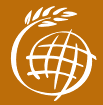The Global conference on Women in Agriculture (GCWA), first international conference to comprehensively address the gender gap in agriculture
[News]

Supported by a number of leading International agencies in this domain (FAO, IFAD, UN Women, World Bank), bilateral donors, foundations, the CGIAR (AWARD, and Gender & Diversity network),Regional Fora -APAARI, FARA, AARINENA etc.-, and attended by NGO/CSOs networks as well as policy makers, ministers, scientists, farmers and women organizations from different regions of the world, the GCWA provided an exceptional opportunity for sharing experiences and discussing policies.
The conference identified a series of priorities to be included in a framework for action that GFAR and regional research fora were entrusted to develop and monitor, globally through the successive GCARDs, as well as across regions, under a new cycle of triennal conferences following New Delhi. Sub Saharan Africa offered to host the second GCWA under the leadership of FARA in 2015.

On 13-15 March, 2012, 760 participants from 50 countries gathered at the NASC Complex, New Delhi, India for the First global conference addressing the gender gap in agriculture and how women can be sustainably empowered in this sector. The Global conference on Women in Agriculture (GCWA) was co-organized by the Indian Council of Agricultural Research (ICAR) and the Asia-Pacific Association of Agricultural Research Institutions (APAARI), in the context of a two year old initiative of the Global Forum on Agricultural Research (GFAR) known as the Gender in Agriculture Partnerships (GAP), implementing one of the major theme for action identified by the Global Conference on Agricultural Research for Development (GCARD) Roadmap in 2010.
Supported by a number of leading International agencies in this domain (FAO, IFAD, UN Women, World Bank), bilateral donors, foundations, the CGIAR (AWARD, and Gender & Diversity network),Regional Fora -APAARI, FARA, AARINENA etc.-, and attended by NGO/CSOs networks as well as policy makers, ministers, scientists, farmers and women organizations from different regions of the world, the GCWA provided an exceptional opportunity for sharing experiences and discussing policies.
The Conference was opened by Indian parliamentaries, ministers and high ranking personalities, introduced by a video message of Ms Michelle Bachelet, Head of UN Women, and substantiated by the findings and recommendations of a number of recent reports including the World Bank, FAO, IFAD Gender Source Book, 2009; the FAO State of Food and Agriculture, 2011[1]; the WDR 2012 on Gender, Equity and Development. Participants were exposed to two High level Policy Forum discussions on the reforms and institutional changes needed for empowering women in agriculture. They also discussed actively six themes in parallel sessions: assessing the status of women in agriculture; agricultural innovations to reduce drudgery; linking women farmers to markets; evaluating their role in ensuring food and nutrition security; their access to assets, resources and knowledge; the specific impact of climate change on their activities, and, the transformational changes required in Education, Research and Advisory services to involve women equitably in agricultural production, and a variety of post harvest income generation activities.
The conference identified a series of priorities to be included in a framework for action that GFAR and regional research fora were entrusted to develop and monitor, globally through the successive GCARDs, as well as across regions, under a new cycle of triennal conferences following New Delhi. Sub Saharan Africa offered to host the second GCWA under the leadership of FARA in 2015.
The GCWA was officially closed by Her Excellency, Pratibha Devi Singh Patil, President of India, who acknowledged the importance and timeliness of the initiative. She emphasized her conviction that, in a context of increasing mobilization of the international community to recognize and support the crucial role of women in agriculture, the GCWA will contribute significantly to creating an enabling environment for policy and operational decisions that will unleash women potential for combating hunger, poverty and malnutrition.
---------------
[1] Opening up women access to “productive resources” to produce, process, and market food products could increase yields on women’s farms by 20 to 30 percent, and in turn, raise total agricultural production in developing countries by 2.5 to 4 percent. The number of hungry people in the world would be reduced by 100 to 150 million people.
Twitter feed
Posted on 18/03/2012

